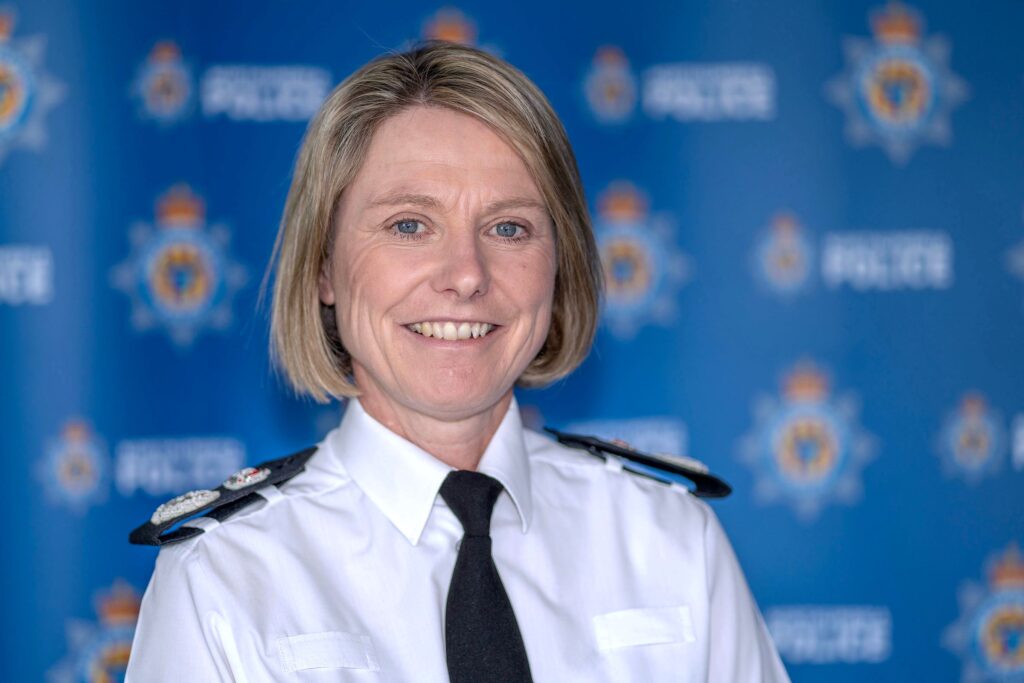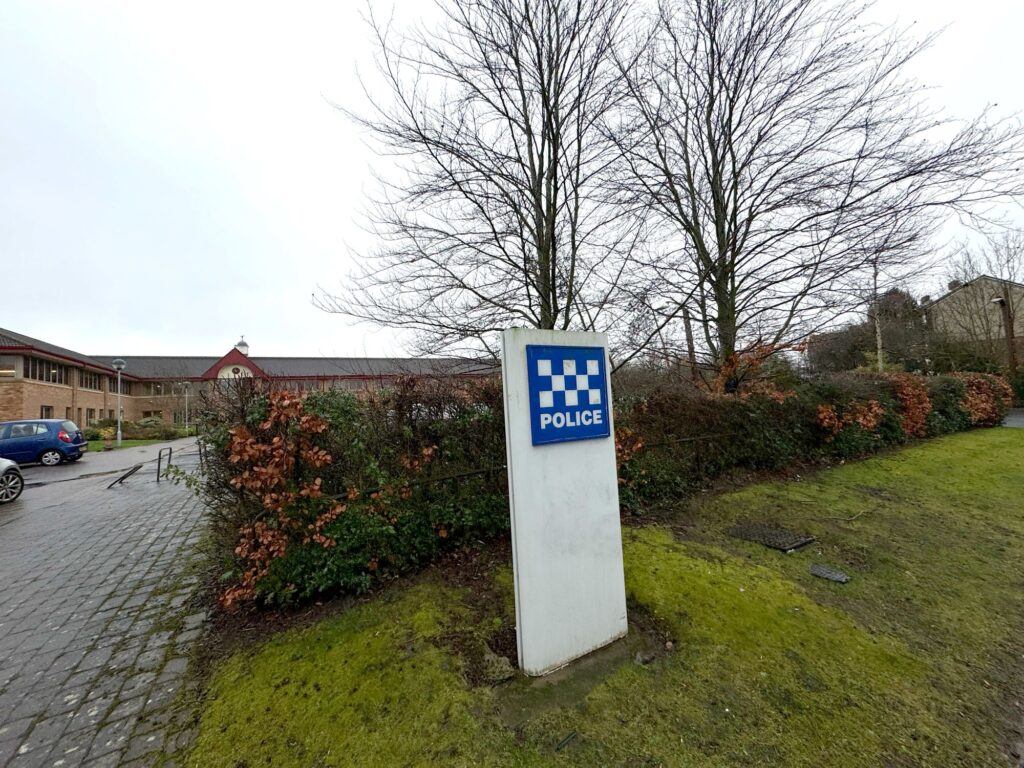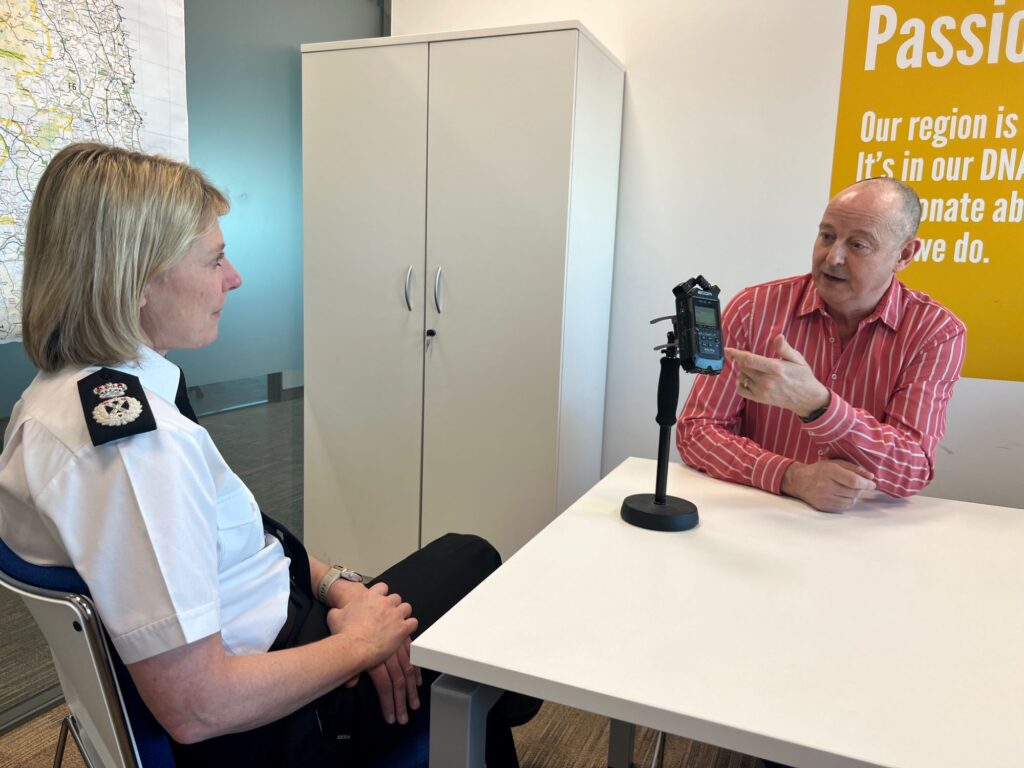
There will be a more visible police presence and a more local focus on crime in Northumbria’s Chief Constable Vanessa Jardine’s vision of how she will reshape the force.
Having taken the top job back in April of last year, the Chief Constable is now setting out her stall on how to bring crime down and raise the public’s trust in the force.
The command structure will be decentralised with more officers on the beat. Staff are being set three priorities: Prevention, Being there and Getting the right outcome for victims.
According to the Chief Constable, Being there is anything from improving how quickly they answer 999 calls and then responding, to keeping people informed about how an investigation is going.
There will be 134 more officers dedicated to neighbourhood policing and they will be urged to be more proactive, for example using local intelligence around drug taking and executing warrants to search properties.
Vanessa Jardine says visibility is key: “One of my frustrations is going past some of our fabulous police stations and seeing the door shut and the station is no longer open. Well, they need to be open, so they’re going to open.”
Many were closed before her time in command when budget cuts started to bite. The justification was made that not many people crossed their doors, but after listening to the public since taking up the post she believes the message is loud and clear: “We want our police stations open, particularly in rural areas.”

The front office at Etal Lane in Newcastle re-opened in January and opening hours in Berwick, Alnwick and Hexham have been extended. As yet there’s no commitment on precise numbers of stations that will re-open while the force works out the staffing but she insists it will be ‘significant’.
A key change is structural. Northumbria has three commands, each of which covers two local authority areas, but consulting with her staff it became clear this was too unwieldy. From April there will be six commands, one per local authority area, each with its own response and CID teams. The goal is to enable each smaller command to get closer to its community and focus on its particular needs.
“It gives direct accountability to the leaders of the team around performance and I think that is one way to get that real focus and improvement.”
It also plays into another of her priorities: prevention. Vanessa Jardine started policing as a constable in Greater Manchester where she recalls attending the same house week-in week-out where they split up a couple having a domestic.

“It took up lots of police time, but as there was always another job to go to, they never had the time to address the cause of the violent outbursts,” she added. “I want everybody to think about, what do I need to do with this incident to stop us coming back here again?”
She believes establishing smaller commands that mirror the local authority boundaries will create better working relationships and co-operation with other agencies. That should mean people can find the appropriate help, such as children’s services or drug intervention teams. The goal is to interrupt that cycle of repeated call outs.
But that co-operation with other cash-strapped agencies may be tested as she also wants to call time on police attending incidents they are not best suited to deal with.
For someone who’s having a mental health crisis she argues: “Having a uniformed police officer in a police car turning up outside your door is not the answer for you. That’s not going to help you. You need to speak to someone who’s trained in mental health.”
The force has already started to implement what’s known as ‘right care, right person’ by not attending some incidents they feel others, such as health professionals, should go to. “It’s a bit of a hamster wheel,” she says. “If you don’t stop the demand coming in through the door, you get more and more demand. So you need to stop it at that point to give yourself more time.”

The Chief Constable also wants her staff’s time spent more effectively. Mobile mini laptops called ‘toughbooks’ are now being issued which means officers can write incident reports and look up intelligence on the go, all without having to return to the police station.
When it comes to prevention, she believes police do have a responsibility to spend time helping to educate young people, especially around carrying knives. It’s not because they are in genuine fear. It’s because it’s a bit of a kudos thing but what they need to realise is that one nick on an artery and people can suddenly die.”
With so many demands on the service from tackling drugs and county lines to cybercrime there’s a lot of pressure to deliver it all within financial limits.
Next year’s proposed budget of £355m involves the police force digging into its own reserves to top that budget up to the tune of £8m. If the Crime Commissioner’s budget is approved, the average ratepayer is being asked to pay just under £170 — a £15 or 9.6% increase on last year.
My absolute priority is the way we behave and I’m prepared to take action against those who do fall below the line of expected standards.
Vanessa Jardine
As Chief Constable Vanessa Jardine works to whatever budget she is given, she insists all priorities will be delivered. For her third, getting the right outcome for victims, she cites someone plagued by off road bikes: “They’re not necessarily looking for criminal justice outcomes, an outcome for them is that the issue goes away. It’s about understanding what people want and talking to them and we have lots of plans around anti-social behaviour.”
Those out of court options include issuing dispersal notices which can ban named individuals from a problem area and having culprits sign up to Acceptable Behaviour Agreements which can lead to further action if broken.
When she took the top job, total crime in the force area was on the rise . In the 12 months to July 2023 there was a 6% increase, with South Tyneside a notable hotspot — up 13%. The Chief Constable puts some of the rise down to changes in the way crimes are recorded and says some crimes, like burglary are down. But as she makes her mark on the force and brings in the changes she will, of course, be judged by results.
She says her own target is not driven solely by stats but by framing the culture of the organisation too. Her message to staff is to treat every person as you would want your mum or dad to be treated — with respect and empathy.
Misogyny, racism or any form of discrimination won’t be tolerated under her watch she insists. “My absolute priority is the way we behave and I’m prepared to take action against those who do fall below the line of expected standards. People should have more trust and confidence in Northumbria Police.
“We should see crime start to fall, we should see people getting to incidents in a timely manner, but ultimately, I want the North East to be a safe place to live and work.”
@InsideOutCJ

Gateshead College has four state of the art campuses with an estate totalling 31,000 square metres – that’s double the size of Holy Island in Northumberland.










